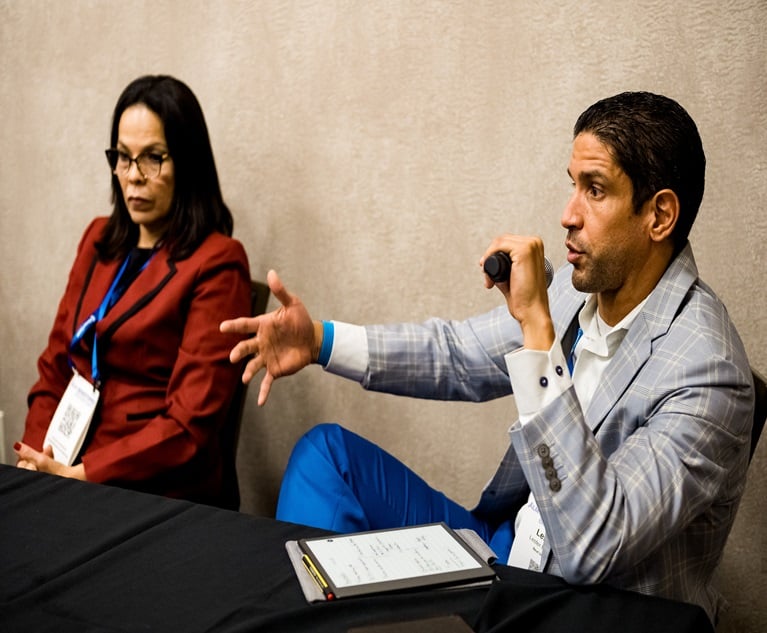You've spent hours poring over r?sum?s, interpreting psychological tests, checking references and interviewing candidates. You've finally come to a decision, made the offer and the candidate has accepted. You're convinced you've hired your next Superproducer. What plays out over the next year or so will determine whether or not you're right.
|What can you do in the ensuing weeks and months to maximize the possibility of success for your new producer? Quite a bit, actually:o Meet with the new producer's spouse or significant other. Hopefully, you've done this before hiring your new producer, but if not, be sure to meet with the spouse or significant other as soon as possible. Building a book of business from scratch is at least a 50-hour-per-week job–and probably more–so the spouse needs to understand both the time commitment and the potential rewards. It's unlikely your new producer can be successful without the support of his or her spouse or significant other. Take them to dinner during the new producer's first week with your agency.o Meet with the support staff before the new producer's first day in the agency. Does your support staff feel like they have plenty of extra time on their hands because their workload is so light? I must be joking, right? More than likely, they think they're overworked as it is. Now you're introducing an enthusiastic, motivated new producer who is going to generate a lot of additional work for them long before the first piece of business is written. It's important for every member of your staff to understand why it's critical to the continued success of the agency to bring new producers on board and what they can specifically do to help them.o Organize the new producer's workspace. Nothing says "you're not important" like arriving on a new job excited and ready to get started, only to discover you have no desk, no computer and no phone. This happened to me more than 25 years ago, and I still remember how it felt. Instead, set a deadline at least a week before the new producer starts to have everything ready to go.o Introduce the new producer to agency personnel. Take the new producer around to each member of your agency and explain how they'll interact. This is an opportunity for you to subtly remind the staff of their role in supporting the new producer. If you establish expectations now, future misunderstandings can be avoided. Also keep in mind that new producers are sometimes uncomfortable with delegating work, and staff may be resistant to accepting the additional workload. Make matters clear on day one.o Arrange for the new producer to meet with company underwriters. These meetings should be face to face where practical, or by phone if necessary. Save your new producer (and ultimately everyone else) a lot of frustration by educating him immediately on the underwriting appetites and target markets of your carriers. Who can better provide this information than the underwriters themselves? Knowing the information underwriters require about specific risks in advance will be a real time-saver for everyone. It's also an opportunity for the new producer to begin building relationships with company personnel.o Send letters of introduction to potential centers of influence. The new producer should have been able to identify at least 100 potential centers of influence before you made the hiring decision. Now you'll want to send a personal letter from the agency CEO to each one to announce the new producer's employment and ask for their help with getting him started in the business. The new producer should be required to meet with two or three of these people each week.o Insist the new producer locate and join a networking group. Networking groups can be extremely helpful to a new producer, especially one who doesn't have a lot of prior contacts. Look for a group that exists specifically for the purpose of exchanging referrals among its members. Most networking organizations will allow one or two "complimentary" visits. Your new producer should carefully observe how well the group is run and what types of professions are represented in its membership. Avoid civic, social, political and religious groups for this purpose. It's usually difficult to justify the time invested in these organizations compared with the small number of referrals typically received.o Develop a written training curriculum. Identify the training needed and the sources of training available. Ideally, state prelicensing training and testing should be completed prior to employment. Look to your companies and local insurance associations to provide technical training. Also, look for people within the agency who may enjoy training others. Establish dates for the completion of each training component and follow up regularly. The new producer should attend the "Dynamics of Selling" seminar as soon as possible. Delay advanced technical training for the first two years.o Assign a mentor. The right mentor can be a great resource for your new producer. The mentor should be readily accessible, which will reduce the demand on the agency owner's or sales manager's time. Being selected as a mentor may compliment the staff member. Often, the experience will re-energize the mentor, and they'll take a personal interest in the new producer's success.o Sit with the new producer and complete a strengths, weaknesses, opportunities and threats (SWOT) analysis. This is a great way for your new producer to quickly get familiar with the agency, the staff, company markets and the marketing territory. It's also a great refresher for you if you've not done this recently.o Establish activity goals. You can't manage results, but you can manage activity. Identify the individual activities that lead to sales and establish weekly goals for each one. Reinforce behavior when goals are met and react swiftly when they're not. Be patient with a new producer who's not closing sales early on in the game, as long as activity goals are being met. If a new producer is unable or unwilling to consistently achieve activity goals and isn't making sales, act quickly and cut your losses.o Meet with the new producer daily. The new producer should provide you a copy of his or her calendar at the beginning of each week. Time should already be blocked out for critical prospecting activities. Review the previous day's accomplishments and planned activity for the current day with him first thing each morning. The No. 1 reason new producers fail is poor time utilization and lack of planned sales effort. New producers need close supervision during the first few weeks and months while they develop good organizational, time management and self-management skills. Eventually, weekly meetings will be sufficient if the new producer has demonstrated the ability to work effectively without close supervision.o Get the new producer out of the office as soon as possible. The new producer is developing work habits, good and bad, even during the first few days and weeks in the agency. Don't allow him to be in the office except when absolutely necessary. This is the time to set examples and establish expectations. "Sitting with" agency personnel for long periods of time is not productive, and it sends the wrong message.o Review the new producer's compensation plan. New producers typically don't understand their compensation plan. A thorough review will avoid misunderstandings and hopefully motivate them to push harder. Disagreements over compensation plans are frequently cited as a cause of resignations of top producers. Don't allow this to become a problem.o Isolate on specific prospecting skills with sales blitzes. Schedule full days of joint fieldwork to develop essential sales and prospecting skills. Prepare for the blitz day by role-playing the selected skill with your producer in the office. Then, on blitz day, accompany your producer on prospecting calls or appointments and reinforce what he or she does correctly. Do not criticize. Instead, if the activity didn't go as well as hoped, ask the new producer what he would do differently next time.o Most important, provide lots of positive reinforcement. We know new producers want to succeed as soon as possible and want to do what's right, but they get discouraged easily and need direction. Bringing aboard a new producer is an awesome responsibility. Obviously, the rewards and costs can be significant to your agency. But also consider the commitment of time and energy the new producer has made to you. Success or failure will not be an isolated event. Their family's welfare is also at risk. It's up to you to do everything you can to maximize their potential for success.Ken Fields, CIC, CPCU, CLU, ChFC, MSM, is an assistant vice president with The State Auto Insurance Cos. and co-developer of the PaceSetter new producer sales development program. He has been personal coach to more than 500 new property-casualty producers over the past 12 years. He is also on the national faculty for The National Alliance Marketing and Sales James K. Ruble Seminars. For information on The National Alliance for Insurance Education & Research and the Dynamics of Selling program, call 800-633-2165 or visit www.thenationalalliance.com.
Want to continue reading?
Become a Free PropertyCasualty360 Digital Reader
Your access to unlimited PropertyCasualty360 content isn’t changing.
Once you are an ALM digital member, you’ll receive:
- All PropertyCasualty360.com news coverage, best practices, and in-depth analysis.
- Educational webcasts, resources from industry leaders, and informative newsletters.
- Other award-winning websites including BenefitsPRO.com and ThinkAdvisor.com.
Already have an account? Sign In
© 2024 ALM Global, LLC, All Rights Reserved. Request academic re-use from www.copyright.com. All other uses, submit a request to [email protected]. For more information visit Asset & Logo Licensing.








